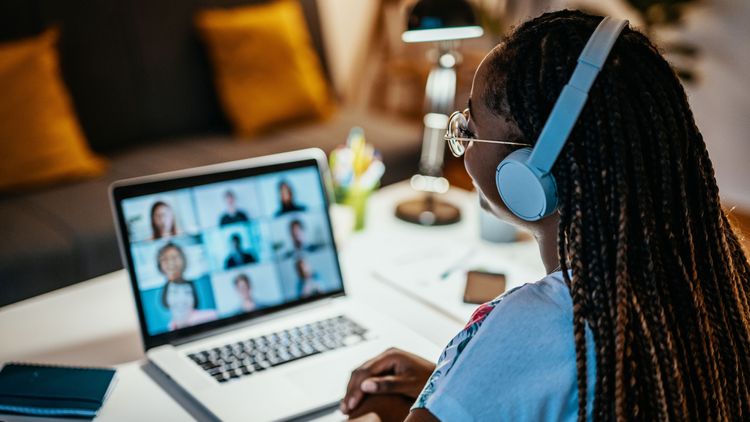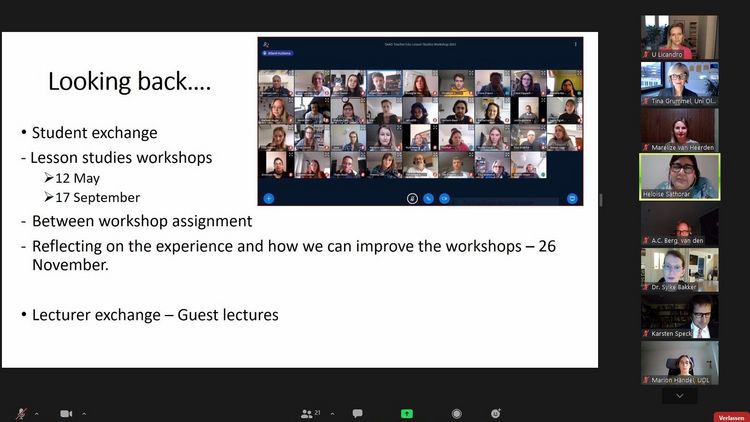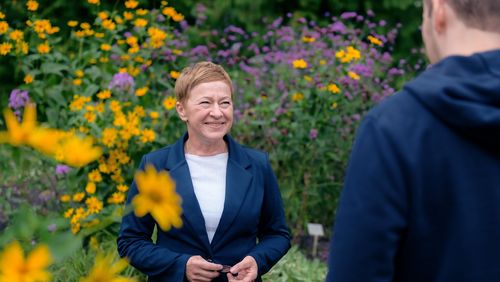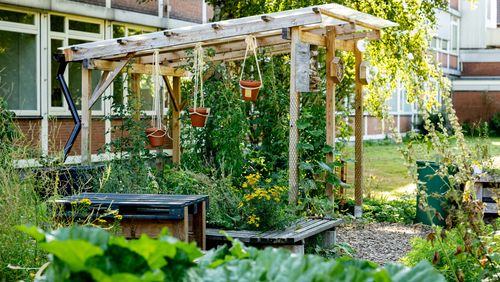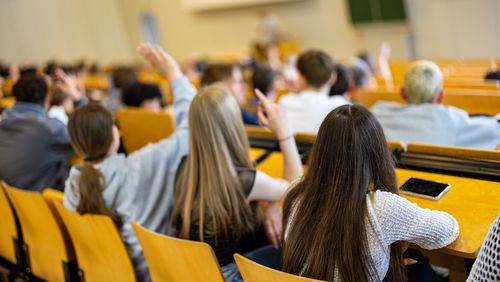Enabling intercultural exchange for student teachers and academics - this is the idea behind the DAAD programme Lehramt.International. Lecturers from the universities of Oldenburg, Groningen and Gqeberha/Port Elizabeth have tested how this can also be achieved online.
Three young people in Pompeii on the day Vesuvius erupted. They are faced with the question: How can I rescue myself and my loved ones? What sounds like the beginning of a Hollywood movie is the introduction to an online game for students, which is designed to help them learn intercultural skills through play. "I use stories to encourage students to see that people are different and to take different positions," explains Nadia Gerritsen, who developed the game.
The English lecturer trains future teachers at the University of Groningen in The Netherlands. She is one of more than 40 university lecturers from the Universities of Groningen and Oldenburg as well as Nelson Mandela University (NMU) in South Africa who are involved in the project "Dimensions of Diversity in Teacher Education". The project is funded by the German Academic Exchange Service (DAAD) and led by the University of Oldenburg. The aim is to raise awareness in future teachers to the various dimensions of diversity and to enable them to gain intercultural experience abroad. In the long run, this will help them prepare for working in an increasingly globalized world.
Virtual workshops instead of meeting in-person
According to DAAD prospective teachers have been less likely to go abroad than other students so far, for manifold reasons Studying abroad often does not form part of the curriculum, for example, or problems arise with the acknowledgement of credits gained abroad, explains Tina Grummel, project coordinator at the University of Oldenburg’s International Office. Overcoming these obstacles and paving the way for future teachers to study abroad and have an international learning experienceis therefore among the key objective of the project.
The pandemic has caused the partners to run the project in other ways than expected, however. Most of the activities had to be moved into the virtual space. Instead of semesters or internships abroad and meeting people in person, virtual workshops, online winter schools and online intercultural training courses were on the students’ agenda. This is, for example, where Nadia Gerritsen's game came into play: By engaging in the story, students tried out what they were supposed to do in real life: To empathize with people from different cultures.
Challenging preconceptions
However, driven by the pandemic the project partners have actually made more progress than expected with innovative teaching formats, Grummel points out. For example, a kind of virtual school internship took place (so-called lesson studies): students from the participating universities observed school lessons in the respective countries via video, analysed them, exchanged their experiences and independently created a joint lesson plan.
This was a valuable experience for the students - despite the unusual format, says Dr Heloise Sathorar, head of the Department of Secondary School Education at NMU in Gqeberha (formerly Port Elizabeth), South Africa. "The students gained insights into how lessons are taught - and were able to challenge their own preconceptions about the country in question," she explains.
Thanks to the online formats, the project partners also reached a larger group of participants from the three universities, says Prof. Dr Ulla Licandro. The Oldenburg professor for special needs education, who is member of the project's steering committee, sees another advantage in the learning groups composed of students from the three countries: "Those who learn in diverse groups themselves begin to reflect their own beliefs and develop a diversity-conscious perspective."
Future blended learning formats
Ultimately, it's not just the students who learn from each other in the project, Licandro emphasizes, but also the university faculty. One example, she says, is the linguistic diversity in South Africa, something which university lecturers in Gqeberha have to address every day: In addition to English as the language of instruction, there are eleven local languages that learners bring with them to schools and universities. Students who teach therefore learn at the university already how to switch from English to another language. And university lecturers regularly provide subject glossaries in various languages, explains Sathorar.
Furthermore, Sathorar emphasizes that being able to exchange information about all these experiences virtually and to network with other teachers has been very valuable. The project partners are proud of what they have achieved: "We have shown that it is possible to teach diversity and intercultural learning online," says Gerritsen. Licandro hopes that the new approaches can be incorporated into future blended learning formats, mixtures of face-to-face and online teaching, and thus have as many students as possible in the various countries benefit in the future.

